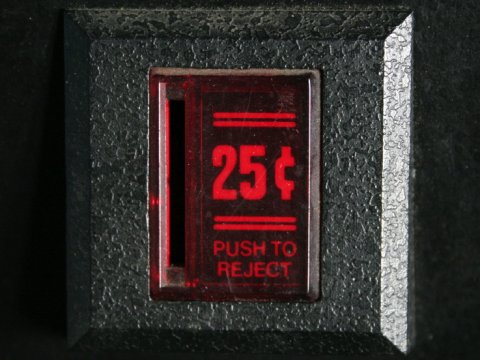What Are Slot Machine Payouts
- What Are Slot Machine Payouts Jackpot
- Are Slot Machine Payouts Regulated
- What Are Slot Machine Payouts Jackpots
- How Are Slot Machine Payouts Determined
- Are Slot Machine Payouts Random
If you are a keen slots player then you will know that one of the most useful pieces of information about a slot that you can discover is the payout percentage for the game.
Slot machines don’t become due for a win when they haven’t paid out in a long while, and they also don’t become hot and start paying out more. Every spin is like a single coin toss or a single roll of the dice—the outcome is independent of all the outcomes prior to it. The location of the slot machine in the casino matters. Each slot machine has its own set-up with different payouts, and the outcome can really make a difference. The paytables hold key information in slot games, such as the rules and features, plus the RTP (return to player percentage) or hit frequency.
- Payouts Are Random: In brick and mortar casinos, most gamblers spend most of their time trying to try and predict the slot machines payout rates, but that is useless. This is because if the slot machine is working, as it should, then the odds are the same on every single spin. The same applies to online slot machines.
- There are several different payout schemes in modern slot machines. A standard flat top or straight slot machine has a set payout amount that never changes. The jackpot payout in a progressive machine, on the other hand, steadily increases as players put more money into it, until somebody wins it all and the jackpot is reset to a starting value.
- Slot machines include their payouts on their pay tables, but they don’t include the probability of achieving any of the winning outcomes. In some countries, the payback percentage is posted on the machines, but not in the United States.
Unfortunately, the term is ripe for misunderstanding and novice slot players often misunderstand what the term actually means, which can lead to them having totally unrealistic expectations of how much they can expect to win on a slot from any given session.
This can then lead to them feeling frustrated, cheated even and less inclined to play the slot again, which is a shame as it is their misunderstanding that is the issue, not the slot or casino in question.
The problem often stems from misunderstanding what the term 'payout percentage' actually means and how it is applied on the slot.
So in this article, we'll attempt to explain clearly what this means.
What is a payout percentage?
A payout percentage is simply the percentage of the total amount of money that the slot will take in over a typical amount of time, that it will pay out back to players in the form of winnings.
What Are Slot Machine Payouts Jackpot
That percentage can range from as little as 75 percent up to around 98 percent.
In essence, that is what payout percentage is. There is nothing more to it, but unfortunately, many people choose to think that this means that out of all the money they spend, they will expect to receive back between 75 and 98 percent back in winnings.
That is indubitably not the case and this misunderstanding occurs because people do not understand how the payout percentage is worked out, nor how the winnings used to calculate that amount, are paid out to players.
Suffice to say that a payout percentage is absolutely NOT a statement of how much of your wagering money you can expect to receive back in payouts on average.
Here's why:
Payout percentage - The number of spins
The first thing to note is that when an organisation such as eCOGRA tests the veracity of the claim that a slot has a payout percentage of X per cent, then they run a series of tests to authenticate that claim.
This involves spinning the reels of the slot millions of times in order to generate what the actual payout percentage is of the slot.
It is only when the reels of the slot are spun a huge amount of times that the payout percentage shows any meaning. As such, it is a statistic which is only meaningful for the casino, rather than the player who is unlikely to have the funds or time to spin a slot the many hundreds of thousands of times needed in order to generate payouts of the percentage levels of the slot.
On fewer spins, numbering 10,000, 1,000 or less, there can be a huge difference to the stated payout percentage. A slot may seem to run 'hot' and payout considerably more than the payout percentage (even run at a loss over that period of spins), whereas at other times it may seem to run 'cold' and pay out considerably less than the stated payout percentage.
The key thing to note here is that for a player, the number of spins they play is usually so small, that payout percentage is almost irrelevant. The more spins you play the more relevant the payout percentage becomes, but only if you spin the reels thousands of times over a sustained period.
Are Slot Machine Payouts Regulated
Even then the payout percentage is still only an average mark. Sometimes the slot will pay out more over one million spins than the stated percentage, other times less, but usually these measures will average out to give a mean percentage level.

Therefore, it is best to view the payout percentage as simply a measure of how much the machine pays out over millions of spins and not really relevant to your chances of success.
Payout percentage - Structure of payouts
The other key aspect to the payout percentage to understand is how the payouts of a machine are structured and that this is equally important to understanding why you are not likely to earn back 75 to 98 percent of what you spend.
The best way to do this is via a hypothetical example. So let's say I developed a slots machine that has a payout percentage of 95% and let's say that in a typical month, this machine generates 1,000,000 in revenue from players playing 1,000,000 spins in that period.

If my hypothetical machine then followed the payout percentages exactly, then 5 percent of that 1,000,000 (50,000) is the casino's operating profit from the machine. That leaves 950,000 to be shared between all the players.
However, slot machines are designed to offer a range of awards, paying out smaller rewards more often and the big jackpot prizes less frequently. Let's say that my machine has paid out one large jackpot prize of 500,000 in the last month, plus three other smaller jackpot prizes of 100,000 apiece.
That means just four lucky players have accounted for 800,000 of the payout percentage. Out of 1,000,000 spins, that means just 0.0004 percent of players have accounted for 84.2 percent of the total payout percentage.

That means the remaining 99.9996 percent of players have just 150,000 in winnings to share amongst them from 9,999,996 spins. You don't need to be a mathematics genius to realise that therefore the vast majority of players of this hypothetical slot would receive a payout that is nowhere near the stated payout percentage.
However, four lucky players have receive a payout well in excess of the payout percentage! Sounds a bit like a lottery, right?
The structure of how your slot pays out is key to understanding that payout percentage is not a figure of how much you will win on average, but simply how much the machine pays out on average over a massive number of spins. Furthermore, how often a machine pays out top prizes, will also mean that the vast majority of players will not experience a payout percentage anywhere near what is stated.

That isn't an error, or misleading, simply a fact that over small sample sizes, the averages stated in the payout percentage are irrelevant.
So while payout percentages may not be useful in letting a player understand how much of their stakes they'll win back, where they are useful to punters is in giving them a comparative measure to judge which machines are most likely to offer them a return.
In theory, you are more likely to win playing a slot with a 95 percent payout percentage than you are a slot with a 75 percent payout percentage.
However, once again, because the number of spins you play will be so small, the chances of you noticing a difference between the slots is negligible. It is entirely plausible that you will play the 75 percent pay out slot and win more than the 95 percent payout percentage slot.

What Are Slot Machine Payouts Jackpots
So the key lesson to learn about payout percentages is not to think they are stating how much you will win back on average in your session, but that they are a simple, general tool to assess how profitable the machine is for the casino.
Playing games of chance, which includes lotto, keno, scratch cards, slots, and many other games, can bring massive wins for the lucky. Take these games for what they are. And remember, there's no harm in trying your luck!
Next Post: Why are there no free hands in blackjack or free spins in roulette?